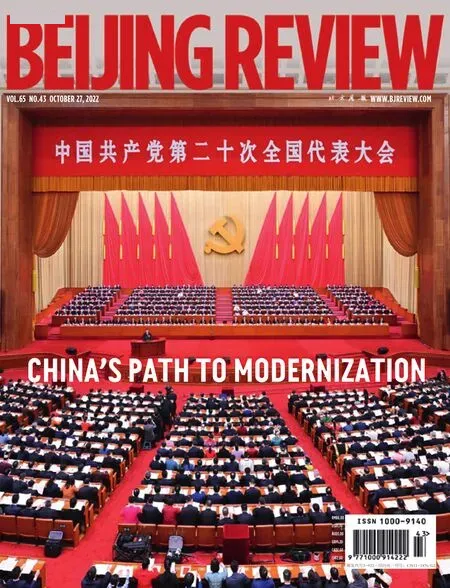Sharp Dialogue: Let the World Hear China’s Voice
By Liang Xiao
With nearly 50 years of diplomatic experience, Liu Xiaoming, who served as ambassador of China to the United Kingdom from 2010 to 2021, considers promoting the deepening of understanding between the Chinese and people of other countries a top priority for China’s diplomats.
But the wider public mostly knows him for a comparison he made eight years ago in an opinion piece for the. Liu likened Japanese militarism to’s arch-villain Lord Voldemort following then Japanese Prime Minster Shinzo Abe’s visit to the Yasukuni Shrine where Japan’s war dead, including 14 Class-A World War II war criminals, are worshiped. Liu wrote at the time, “If militarism is like the haunting Voldemort of Japan, the Yasukuni Shrine in Tokyo is a kind of, representing the darkest parts of that nation’s soul.”
The article soon became the topic of worldwide discussion. Within 10 days, Liu was invited by almost every major British television and radio networks for live interviews. On January 3, 2014,he appeared on ITV’s, explaining to correspondent John Ray that “Lord Voldemort will not be destroyed if you do not destroy all the seven. And I made the comparison because militarism has not been completely destroyed [in Japan].” Five days later,during an interview with Jeremy Paxman on BBC 2’s, Liu quoted Winston Churchill—those who fail to learn from history are doomed to repeat it—to elaborate on China’s position and warn the international community to beware of the revival of militarism in Japan.

In the years that followed, Liu gave many interviews, covering everything from China’s stance on COVID-19 and Hong Kong to the country’s relationship with the UK, pitting him against many of Britain’s best known TV presenters and interviewers.
With his 11 years of service in London, Liu became the longestserving Chinese ambassador in the history of China-UK relations and the longest-serving ambassadorlevel diplomat since the founding of the People’s Republic of China in 1949. These feats aside, Liu deems three other records in China’s diplomatic history to be his proudest achievements: During his time as ambassador to the UK,he made more than 700 speeches,wrote more than 170 articles for the mainstream press and gave more than 170 interviews, including 29 live ones, to major Western media outlets. On October 9, Liu’s new book, a bilingual compendium of his live interviews with British media published by Beijing Publishing Group under the title, became the latest addition to that list.
The compilation comes with the recommendation of several high-level dignitaries and scholars, including former Chinese Foreign Minister Li Zhaoxing and former Commercial Secretary to the UK Treasury Jim O’Neill.
“The huge value of this book is it provides a unique case study of how Ambassador Liu Xiaoming made valuable pioneering efforts from the Chinese Embassy in the UK to make an optimal impact to ‘let the world hear the voice of China’,” Alistair Michie, Secretary General of the British East Asia Council,wrote.
At the book launch, Liu shared his belief that as China is increasingly put under global spotlight, the world is eager to know more about the country. However, the majority of people in Western countries know very little about China.
“We should improve our ability to engage in international communication to tell China’s story well, make the voice of China heard, understood,and recognized. We should present a true, multidimensional and comprehensive China to the world. Let the world see a reliable, admirable and respectable image of China,” he explained.
During a recent interview with, Liu also touched on the high expectations he holds for the younger generations, especially for Chinese students studying overseas.
“When I was in the UK, I reached out to many universities; this is a good way to make more young people know about China. Another reason is that the biggest percentage of overseas students in the UK hails from China,” Liu said. He hopes these students can become good storytellers, telling their classmates, teachers,neighbors, and so on, about the great changes taking place in China, in their hometowns, as well as communicating their own experiences.
“I’ve said this many times: Every Chinese student studying abroad is a Chinese ambassador.” BR

